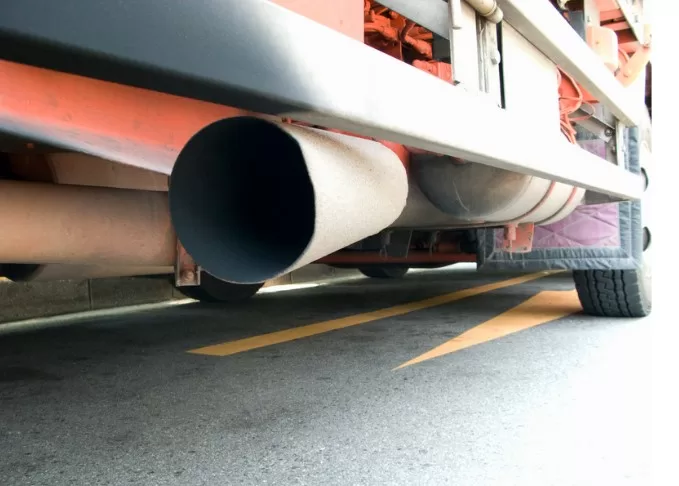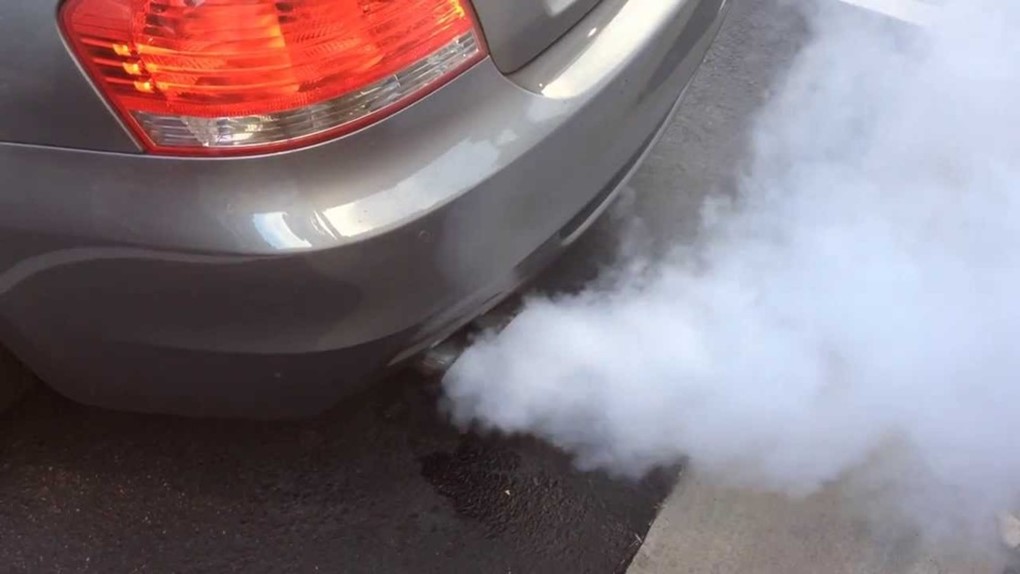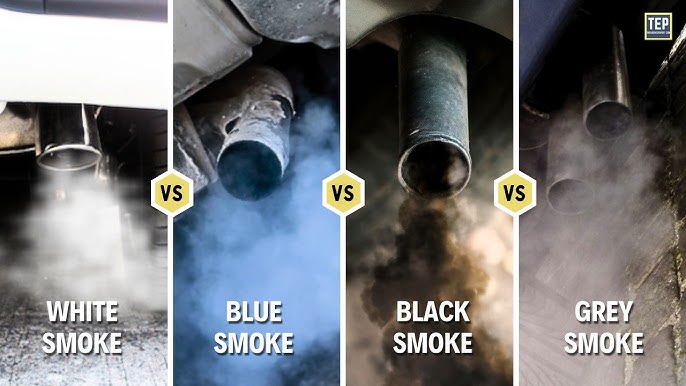Seeing grey smoke from your diesel exhaust when accelerating can be alarming. It might signal underlying issues with your vehicle.
Diesel engines are known for their durability and efficiency. However, grey smoke from the exhaust can indicate potential problems. This smoke might result from various issues, such as incomplete combustion or fuel contamination. Understanding the reasons behind this can help you address and fix them.
In this blog, we’ll delve into the common causes of grey smoke during acceleration. We’ll also discuss how to diagnose these issues and the steps to fix them. This knowledge can help maintain your vehicle’s performance and longevity. Stay tuned to learn more about keeping your diesel engine running smoothly.

Credit: ksmobiledieselservice.com
Causes Of Grey Smoke
Incomplete combustion often leads to grey smoke. Diesel engines need a precise fuel-air mix. If the mix is off, it creates grey smoke. This can happen if the fuel injectors are dirty or faulty. Regular checks can prevent this issue. Poor quality fuel can also cause incomplete combustion. Keep your engine parts clean and use good fuel.
Fuel contamination is another cause of grey smoke. Dirt or water in the fuel affects the engine. Contaminated fuel does not burn properly. This improper burning creates grey smoke. Always check the fuel quality. Use clean, uncontaminated fuel. Regular fuel filter changes can help avoid this issue.
Engine Issues
Worn out engine parts can cause grey smoke. Old piston rings may not seal well. Oil leaks into the combustion chamber. This oil burns and makes smoke. Valve seals can also wear out. They let oil into the cylinders. This oil burns and makes smoke too.
A bad turbocharger can cause grey smoke. Oil can leak into the exhaust. This happens if seals are bad. The oil burns and creates smoke. Faulty bearings can also cause issues. They make the turbo work poorly. This leads to smoke from the exhaust.
Fuel System Problems
Injectors spray fuel into the engine. Faulty injectors cause grey smoke. They may not spray the right amount. This leads to improper fuel burning. The engine struggles. Smoke appears.
A faulty fuel pump disrupts fuel flow. The engine may get too much or too little fuel. This imbalance causes inefficient combustion. As a result, grey smoke is emitted. The engine may also stall. Regular checks prevent this.
Air Intake Problems
A clogged air filter can cause grey smoke from diesel exhaust. The engine needs clean air to run well. A dirty filter blocks air flow. This makes the engine work harder. It burns more fuel and makes more smoke. Cleaning or replacing the air filter can fix this problem.
Air leaks in the intake system also cause grey smoke. Air leaks let in unfiltered air. This causes the engine to mix air and fuel wrong. The engine then burns fuel badly. This leads to grey smoke. Checking and fixing air leaks can solve this issue.
Exhaust System Faults
An EGR valve recirculates exhaust gases. It helps lower emissions. A dirty or stuck valve can cause problems. Grey smoke may appear from the exhaust. This happens when too much exhaust gas enters the engine. The engine burns fuel poorly. Fixing the EGR valve can stop the smoke.
The catalytic converter cleans harmful gases. If it fails, exhaust smoke changes color. Grey smoke means the converter is not working well. Blocked or damaged converters need replacing. Check for other signs like bad smell or poor engine performance. Fix the catalytic converter to keep the air clean.
Detection And Diagnosis
Check the exhaust pipe for grey smoke. This is a clear sign. Look for oil leaks around the engine. Oil leaks can cause grey smoke. Inspect the air filter. A dirty filter blocks airflow. This can lead to smoke. Examine the fuel injectors. Faulty injectors may cause the engine to burn fuel improperly. This can create grey smoke.
Use an OBD scanner. This tool reads error codes from the engine. It helps identify issues. An oil analysis can be useful. This test checks for contaminants in the oil. A compression tester measures engine pressure. Low pressure can indicate problems. A smoke tester finds leaks in the system. Leaks can cause smoke emissions.
Preventive Measures
Regularly check your diesel engine. This helps keep it running smooth. Replace air filters often. Dirty filters can cause smoke. Clean fuel injectors as well. Dirty injectors can lead to poor fuel burn. Schedule oil changes on time. Fresh oil keeps the engine healthy.
Always use high-quality diesel fuel. Good fuel burns cleaner. This reduces smoke. Avoid cheap fuel. It may contain impurities. Impure fuel can damage the engine. Check for water in the fuel tank. Water can cause poor combustion.
Repair Solutions
Grey smoke from diesel exhaust when accelerating often signals incomplete fuel combustion. This can stem from clogged air filters or faulty injectors. Regular maintenance ensures cleaner emissions and better engine performance.
Component Replacement
Replacing old parts can stop grey smoke. Turbochargers and fuel injectors often cause this issue. Turbochargers help push air into the engine. If broken, they need a change. Fuel injectors spray fuel into the engine. Bad injectors can make the engine smoke. Changing them can fix the smoke problem.
Professional Services
Mechanics can diagnose the problem fast. They have the right tools. Experts know which parts need changing. They can also clean the engine. Professionals ensure the work is done right. This saves time and money. Visiting a professional is a good choice.

Credit: www.carkeys.co.uk
Frequently Asked Questions
Why Is My Diesel Blowing Grey Smoke When Accelerating?
Grey smoke from your diesel engine often indicates incomplete combustion. Causes include clogged air filters, faulty fuel injectors, or turbocharger issues. Promptly inspect and maintain these components to ensure optimal engine performance.
Can A Bad Turbo Cause Grey Smoke?
Yes, a bad turbo can cause grey smoke. Damaged seals or bearings in the turbo may lead to oil leaks. This oil can then burn, producing grey smoke from the exhaust.
How To Fix Diesel Smoke On Acceleration?
Clean or replace the air filter, check and fix fuel injectors, ensure proper turbocharger function, and use diesel additives. Regular maintenance helps prevent smoke issues.
What Does White Grey Smoke Mean On A Diesel?
White or grey smoke from a diesel engine often indicates coolant leaking into the combustion chamber. This could be due to a blown head gasket or cracked engine block. Immediate inspection is necessary to prevent further damage.
Conclusion
Grey smoke from diesel exhaust can signal various issues. Regular maintenance helps. Check your fuel, air filters, and engine health. Addressing the problem early prevents bigger issues. Consult a professional mechanic for persistent smoke. Keeping your diesel engine in good condition ensures better performance.
Your vehicle will run smoothly and efficiently. Stay vigilant and proactive. Taking care of your engine can save money and stress.

